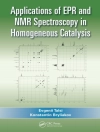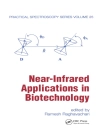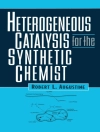Microplastics in the Ecosphere
Discover the environmental impact of microplastics with this comprehensive resource
Microplastics are the minute quantities of plastic that result from industrial processes, household release and the breakdown of larger plastic items. Widespread reliance on plastic goods and, particularly, single-use plastics, which has been increased by the COVID-19 pandemic, has made microplastics ubiquitous; they can be found throughout the ecosphere, including in the bloodstreams of humans and other animals. As these plastics emerge as a potential threat to the environment and to public health, it has never been more critical to understand their distribution and environmental impact.
Microplastics in the Ecosphere aims to cultivate that understanding with a comprehensive overview of microplastics in terrestrial ecosystems. It analyzes microplastic distribution in aerosphere, hydrosphere, and soil, tracing these plastics from their production on land to their distribution–overwhelmingly–in maritime ecosystems. The result is a book that will inform researchers and policymakers as we look to tackle this emerging challenge globally.
Microplastics in the Ecosphere readers will also find:
* Introductory information about the production and distribution of single-use plastics
* An emphasis on management and mitigation strategies designed to reduce contamination over time
* A multidisciplinary approach, combining concepts and analytical techniques from a range of scientific fields
Microplastics in the Ecosphere is a valuable guide for researchers and scientists, advanced undergraduate and graduate students, industry professionals, and policymakers looking to understand the impact of these widespread materials.
Зміст
Section 1 Single use plastics
1 Scientometric Analysis of Microplastics across the Globe
2 MICROPLASTICS POLLUTION IN THE POLAR OCEANS – A REVIEW
3 Microplastics – Global Scenario
4 The Single-use Plastic Pandemics in the COVID-19 era
Section 2 Microplastics in the aerosphere
5 Atmospheric Microplastic Transport
6 Microplastics in the atmosphere and their human & eco risk
7 Sampling and detection of microplastics in the atmosphere
8 Sources and circulation of microplastics in the aerosphere / Atmospheric transport of microplastics
Section 3 Microplastics in the aquatic environment
9 Interaction of chemical contaminants with microplastics
10 Microplastics in freshwater environments
11 Microplastics in landfill leachate: flow and transport
12 Microplastics in the Aquatic Environment – Effects on Ocean Carbon Sequestration and Sustenance of Marine Life
Section 4 Microplastics in soil systems
13 Entry of microplastics in the agroecosystems: A serious threat to food security and human health
14 Migration of microplastic-bound contaminants to soil and their effects
15 Plastic mulch derived microplastics in agricultural soil systems
16 CRITICAL REVIEW ON MICROPLASTICS IN SOIL
17 What do we know about microplastics effects in soil?
18 Microbial degradation of plastics
19 Microplastics and soil nutrient cycling
Section 5 Microplastics in food systems
20 Microplastics in the food chain
21 Microplastics in Salt and Drinking Water
22 Microplastics in commercial seafood (Invertebrates) and Seaweeds
23 Microplastics toxicity to human
Section 6 Treatment technologies and management
24 Management of microplastics from source to human
25 Single use ordinary plastics Vs bioplastics
Section 7 Case studies
26 Plastic nurdles in marine environments by accidental spillage
27 Compost-hosted microplastics – Municipal Solid Waste compost
28 Single use ordinary plastics and bioplastics – A case study in Brasil
29 Microplastics remediation: possible perspective for saline environment mitigation
30 The Management of Waste Tyres: a case study in Brazil
Про автора
Meththika Vithanage, Ph D is a Professor and founding Director of the Ecosphere Resilience Research Centre, University of Sri Jayewardenepura, Sri Lanka. She holds adjunct professor positions in the UWA, Australia, UPES, India and NIFS, Sri Lanka. She has published more widely than any other environmental science researcher in Sri Lanka. She is a Highly Cited Researcher and publishes widely in the field of Environmental Science.
Majeti Narasimha Vara Prasad, Ph D is Emeritus Professor at the School of Life Sciences, University of Hyderabad, Hyderabad, India. He has decades of experience teaching and publishing on environmental science subjects, and his awards include the 2007 Pitamber Pant National Environment Fellowship by the Ministry of Environment, Forests and Climate Change, Government of India.












